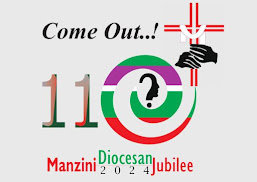The sequency of readings during the Lenten Season is always the same every year (with the exception of Sundays). I believe that, while one might not remember them all, the ones we read the very first days have a special impact in our lives.
The very first Friday of Lent we face a very powerful and useful text from Isaiah on fasting (58: 1 - 9). Useful because on Ash Wednesday we took our commitment to giving alms, prayer and fasting. During the homily I guess we were reminded on fasting and abstening from meat, or a drink or a chocolate…
Powerful because Isaiah goes much further than that.
I guess he points out to the risk of making sure we “sacrifice a bit” without really addressing any need for conversion in our relationships, deceiving ourselves and others.
Our country is going through a difficult situation. There is not a day in which we do not hear the cry of the people. Many have lost everything. They planted but there was not enough rain. They lost their cattle. The price of food has increased tremendously: “Maize prices have increased by 66 percent in a country in which just under half of the population are unemployed...” (www.irinnews.org) In some places children and adults are already getting sick because of water related viruses.
We need to remember there are “about 200,000 children, or nearly one fifth of the country’s 1.1 million people, are classified as orphaned or vulnerable. Swaziland has the world's highest prevalence of HIV - 26.1 percent.” (www.irinnews.org) An important percentage of our population is on antiretroviral treatment, I wonder if they would be able to continue without food or if they will default on the treatment.
It cannot just be “business as usual” when it is said that about 300,000 people might be in need of food aid by March/April.
We risk reaching our Easter celebrations without turning our hearts towards to those who are suffering but happy to know we have sacrificed a bit and prayed a bit more.
Isaiah invites us this year (like every year!) to go deeper:
Just the other day someone wondered why God is not listening to our cry. I do not have an answer to that but we all know what we are called to do to respond to it: this is a special time to increase our solidarity.
The very first Friday of Lent we face a very powerful and useful text from Isaiah on fasting (58: 1 - 9). Useful because on Ash Wednesday we took our commitment to giving alms, prayer and fasting. During the homily I guess we were reminded on fasting and abstening from meat, or a drink or a chocolate…
Powerful because Isaiah goes much further than that.
Look, you do business on your fast-days, you oppress all your workmen;
look, you quarrel and squabble when you fast and strike the poor man with your fist.
Fasting like yours today will never make your voice heard on high.
Is that the sort of fast that pleases me, a truly penitential day for men?
Hanging your head like a reed, lying down on sackcloth and ashes?
Is that what you call fasting, a day acceptable to the Lord?
I guess he points out to the risk of making sure we “sacrifice a bit” without really addressing any need for conversion in our relationships, deceiving ourselves and others.
Our country is going through a difficult situation. There is not a day in which we do not hear the cry of the people. Many have lost everything. They planted but there was not enough rain. They lost their cattle. The price of food has increased tremendously: “Maize prices have increased by 66 percent in a country in which just under half of the population are unemployed...” (www.irinnews.org) In some places children and adults are already getting sick because of water related viruses.
We need to remember there are “about 200,000 children, or nearly one fifth of the country’s 1.1 million people, are classified as orphaned or vulnerable. Swaziland has the world's highest prevalence of HIV - 26.1 percent.” (www.irinnews.org) An important percentage of our population is on antiretroviral treatment, I wonder if they would be able to continue without food or if they will default on the treatment.
It cannot just be “business as usual” when it is said that about 300,000 people might be in need of food aid by March/April.
We risk reaching our Easter celebrations without turning our hearts towards to those who are suffering but happy to know we have sacrificed a bit and prayed a bit more.
Isaiah invites us this year (like every year!) to go deeper:
Is not this the sort of fast that pleases me – it is the Lord who speaks –
to break unjust fetters and undo the thongs of the yoke,
to let the oppressed go free, and break every yoke,
to share your bread with the hungry,
and shelter the homeless poor,
to clothe the man you see to be naked and not turn from your own kin?
Just the other day someone wondered why God is not listening to our cry. I do not have an answer to that but we all know what we are called to do to respond to it: this is a special time to increase our solidarity.
Then will your light shine like the dawn and your wound be quickly healed over.
Your integrity will go before you and the glory of the Lord behind you.
Cry, and the Lord will answer; call, and he will say, ‘I am here.’




